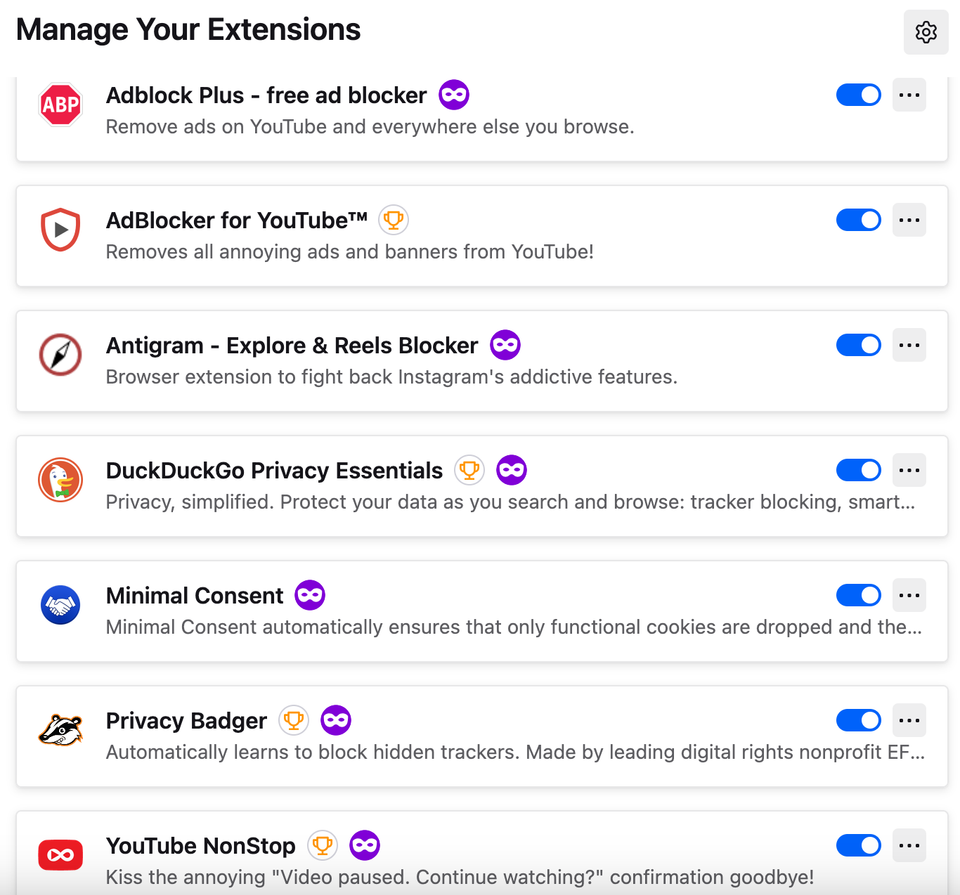3.5 Browser extensions that I sometimes use

I tend to use just a few browser extensions on my computers with the intention of enhancing my efficiency at work or whatever I'm doing, but also for understanding the context of my internet usage and its consequences. Below, I list just a few extensions that I use very often as ways to have a bit more control over how I use the internet. I won't include links as the relevant site will depend on your browser.
Antigram
I recently discovered this browser extension, mostly because I reopened Instagram. A few of the most inconvenient aspects of this social network are the poor control over the contents that are shown from friends versus influencers and other content creators. My intentions for using Instagram are strictly related to staying in touch with my friends and family. Antigram removes a lot of distraction—it only keeps messages and posts from friends (at least by the time I wrote this review). Using Instagram from my computer feels much different than using it from my phone, where restricting reels and other options is virtually impossible.

Adblock
I won't go into detail on this one, but as of right now, Adblock has prevented me from seeing almost a quarter million ads over the last year or so. I'm not sure how accurate that number is, but in general, I know some websites get particularly annoyed at the use of this extension. Some of them will explicitly request you to disable it while browsing the site. I cannot quantify the outcomes of this extension, but it has clearly affected my use of the internet in a very positive way.

Privacy badger
This is a very simple extension that tells you how many trackers are associated with a given website, discloses their identity, and prevents some of them from tracking you. It's generally a nice option to be aware of who's trying to get more data out of you.

Youtube nonstop
Relevant for those times when I didn't have access to Spotify. YouTube Nonstop literally does that—it prevents playlists from being paused when inactivity is detected. It's a very handy extension overall, but I no longer use YouTube the way I used to.